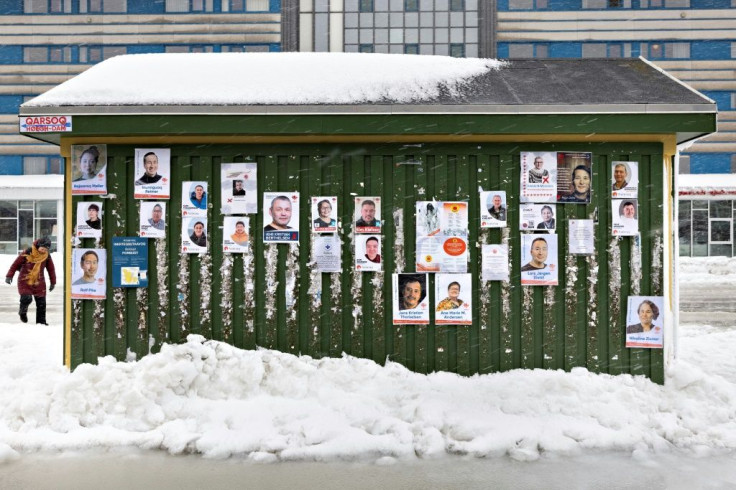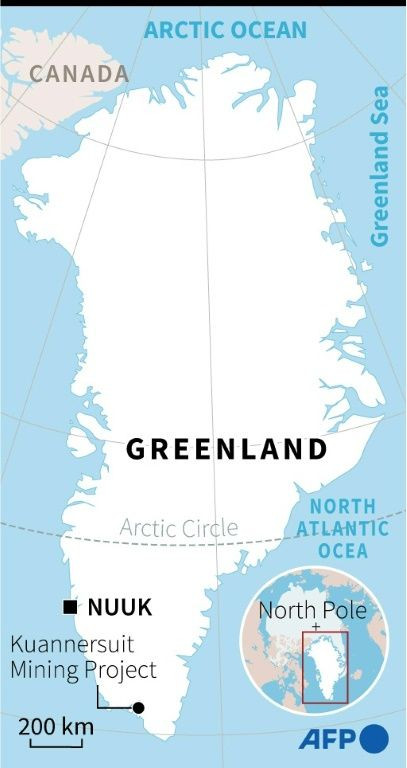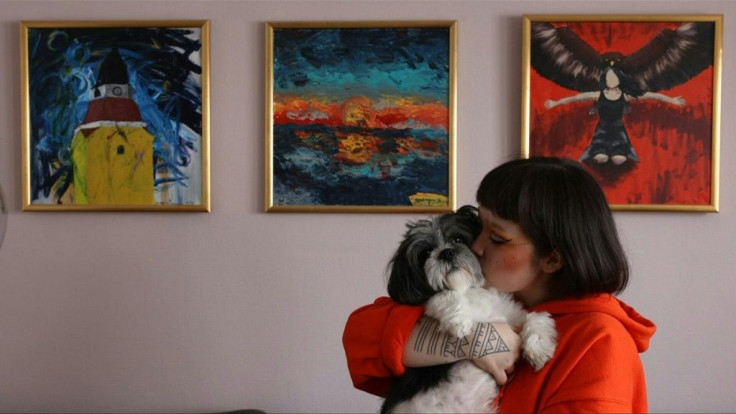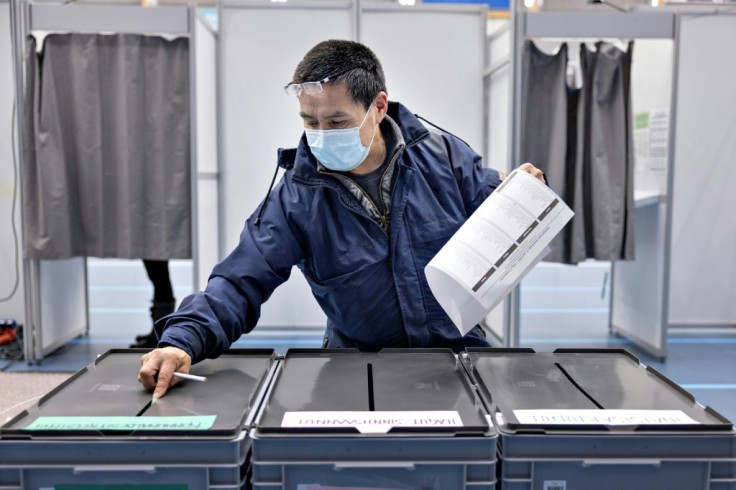Rare Earth Mine Takes Centre Stage In Greenland Vote
Greenland went to the polls Tuesday after an election campaign focused on a disputed mining project in the autonomous Danish territory, as the Arctic island confronts the impact of global warming.
Snow fell over the capital Nuuk as voters queued at polling stations, with roughly 40,000 people eligible to vote in the legislative elections.
Face masks were handed out to voters entering a Nuuk polling station. There have only been a total of 31 confirmed Covid-19 cases and no deaths in the isolated territory.
Greenland's two main parties are divided on whether to authorise a controversial giant rare earth and uranium mining project, which is currently the subject of public hearings.

Supporters, including the ruling social democratic Siumut party, say the mine would yield an economic windfall.
Opponents, such as the opposition left-green IA party, argue it could harm the vast island's unspoiled environment.
"I'm voting for a party that says no to uranium," 40-year-old Henrik Jensen told AFP as he left his polling station.
Greenland's geostrategic location and massive mineral reserves have raised international interest.

The election campaign for parliament's 31 seats has also centred on fishing, the main driver of Greenland's economy.
And at a time when young Greenlanders are reconnecting with their Inuit roots and questioning their Danish colonial heritage, social issues and cultural identity have also been part of the debate.
Polling stations closed at 8 pm (2200 GMT) throughout Greenland, but in Nuuk officials decided to keep the doors open a while longer as latecomers were still lining up outside in the early evening.
Preliminary results were expected overnight.

IA led in the latest opinion polls with around 36 percent, with Siumut, which has been in power almost uninterrupted since Greenland gained autonomy in 1979, on 23 percent.
Experts have warned that the outcome is however uncertain.
Opinion polls "often put IA way too high in the polls," University of Greenland political scientist Rasmus Leander Nielsen told AFP.

The most likely scenario, he said, was "that IA forms a coalition with one or two smaller parties".
IA chairman Mute Egede told AFP that "it's up to the voters now".
"If they choose us we are ready to start working from day one to build a coalition that can govern the country for the next four years," Egede said.
IA has called for a moratorium on uranium mining, which would effectively put a halt to the mining project.
The Kuannersuit deposit, in the island's south, is considered one of the world's richest in uranium and rare earth minerals -- a group of 17 metals used as components in everything from smartphones to electric cars and weapons.
A poll published Monday by newspaper Sermitsiaq showed that 63 percent of respondents were against the mining project.
Local authorities have to give the green light before Australian group Greenland Mining can get an operating licence.
Siumut party leader Erik Jensen has said the mine would be "hugely important for Greenland's economy", helping diversify revenues.
That is crucial if the island wants to gain full independence from Copenhagen someday.
Denmark, which is not opposed to Nuuk's independence, gives the island annual subsidies of around 526 million euros ($638 million), accounting for about a third of its budget.
Greenland plans to develop its fishing, mining and tourism sectors, as well as agriculture in the southern part of the island which is ice-free year-round.
For Cambridge University Arctic specialist Marc Jacobsen, keeping the option of large-scale mining open is the reason why Greenland has not signed the Paris climate accord.
The treaty lets states decide their own measures to meet the common goal of keeping global warming under two degrees Celsius.
"Signing the Paris Agreement would not allow them to develop any big mining project," Jacobsen noted.
IA has vowed to sign the Paris Agreement if it comes to power.
© Copyright AFP 2024. All rights reserved.





















